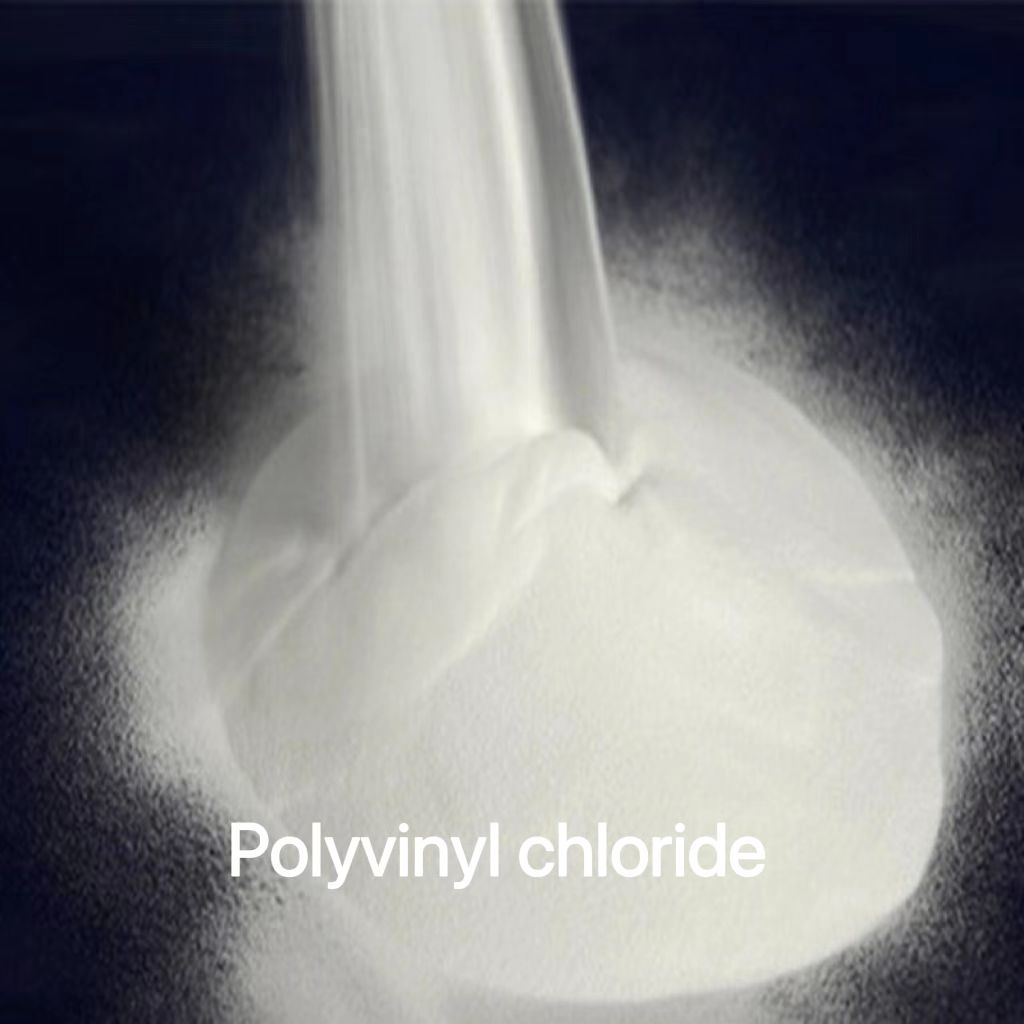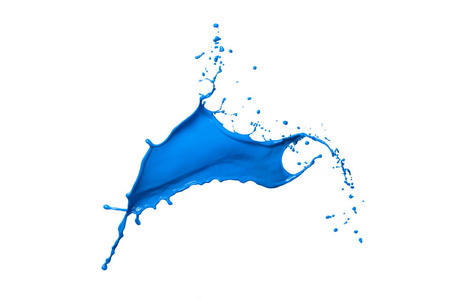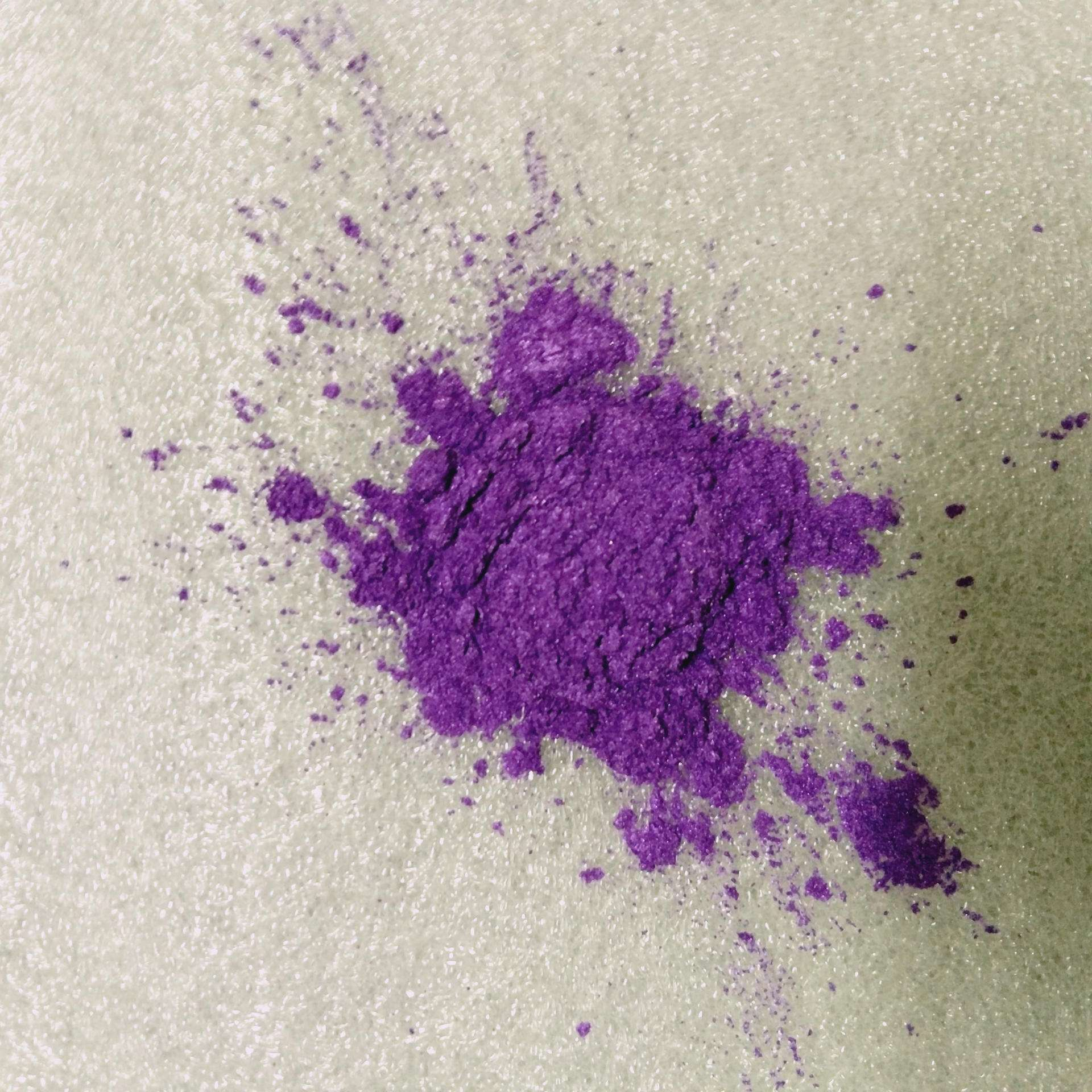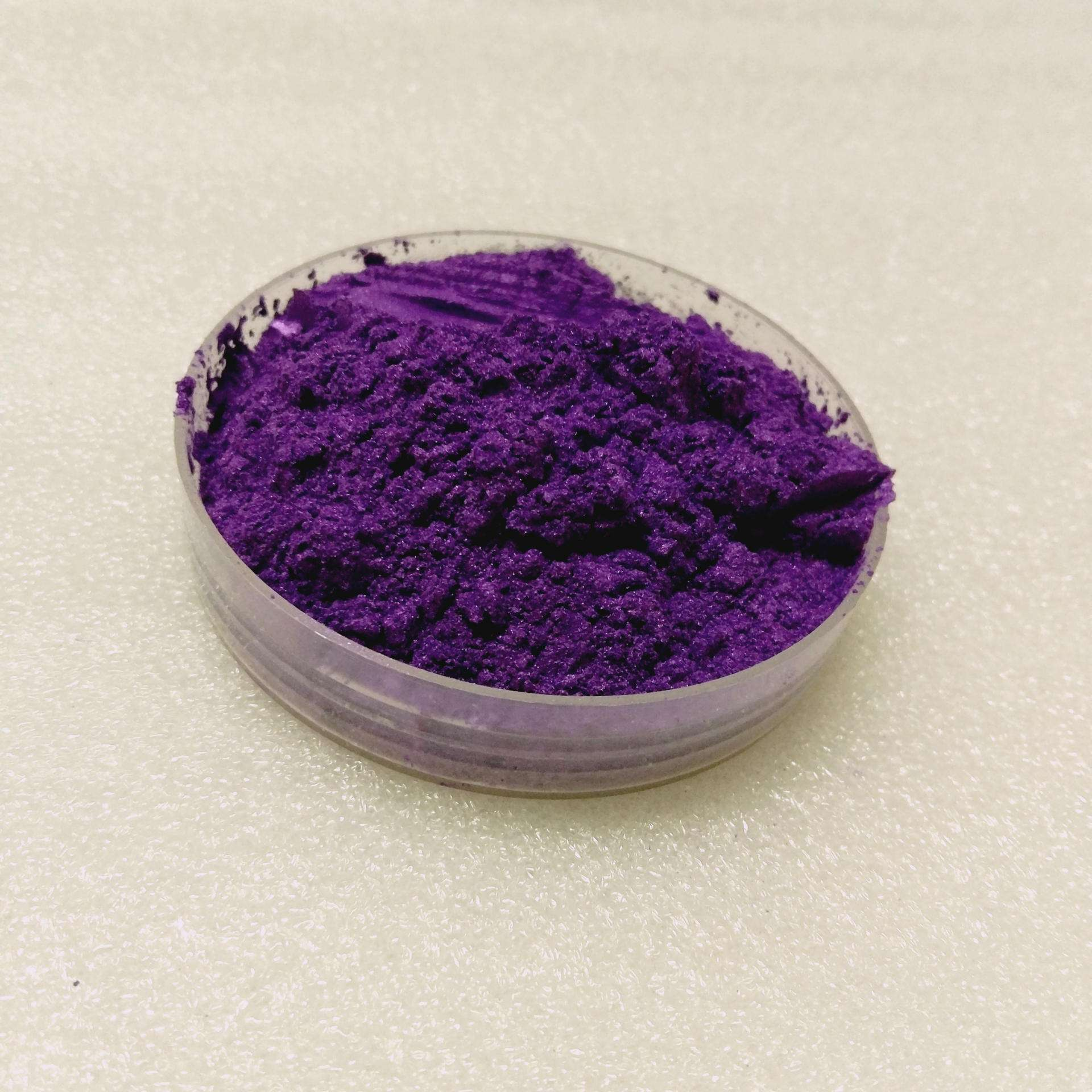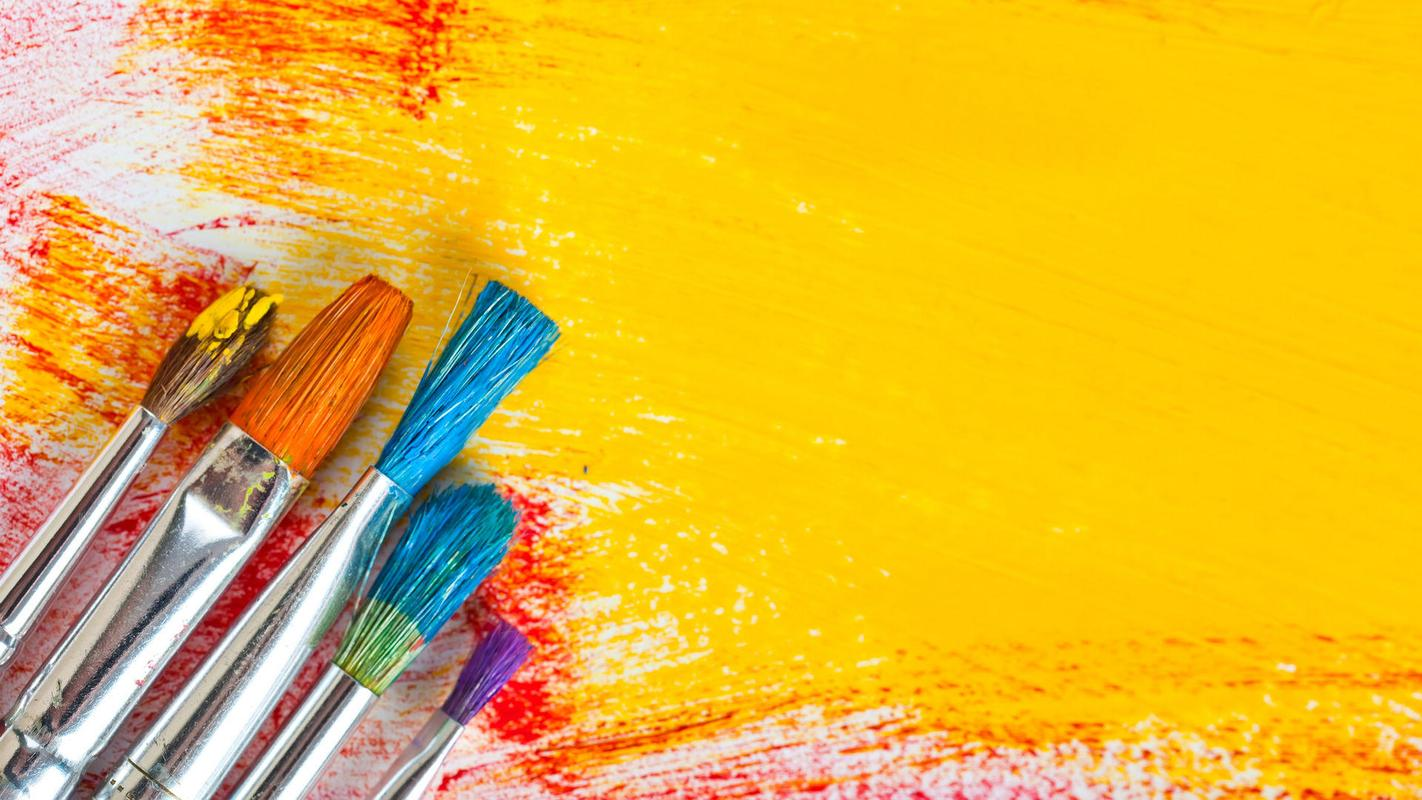The physical and chemical property of Polyvinyl Chloride(PVC)
Polyvinyl Chloride(PVC) has stable chemical and physical property, and difficult to be corroded by acid and alkali. Polyvinyl Chloride(PVC) has advantages of flame retardant(flame retardant value is above 40),hot resistance,high chemical resistanceï¼Resistance to concentrated hydrochloric acid, 90% sulfuric acid, 60% nitric acid and 20% sodium hydroxideï¼, good mechanical strength and electrical insulation. While, itâs hot resistance is poor, the softening point is 80â, reaching 130â begins to decompose and discolor,and HCI appeared.
The structure of Polyvinyl Chloride (PVC) resin in industrial industry is mainly non-crystalline structure, but it also contains some crystallization areas (about 5%), so polyvinyl chloride(PVC) do not have clear melting point, it start to soften reaching around 80â,the temperature of thermal torsion (under 1.82MPa load) is 70-71C, and it begins to flow at 150C under pressure, and slowly releases hydrogen chloride, which causes discoloration of PVC (from yellow to red, brown, or even black). The weight-average relative molecular weight of industrial PVC is in the range of 48-48000, and the corresponding number-average relative molecular weight is 2-19500. However, most industrial resins have a weight-average relative molecular weight of 10-200000 and a number-average relative molecular weight of 455-64000. Rigid polyvinyl chloride PVC (without plasticizer) has good mechanical strength, weather resistance and fire resistance. It can be used as structural material alone and used in chemical industry to manufacture pipes, plates and injection molding products. Rigid PVC can be used as reinforcing material.
Recommand products from TDD:
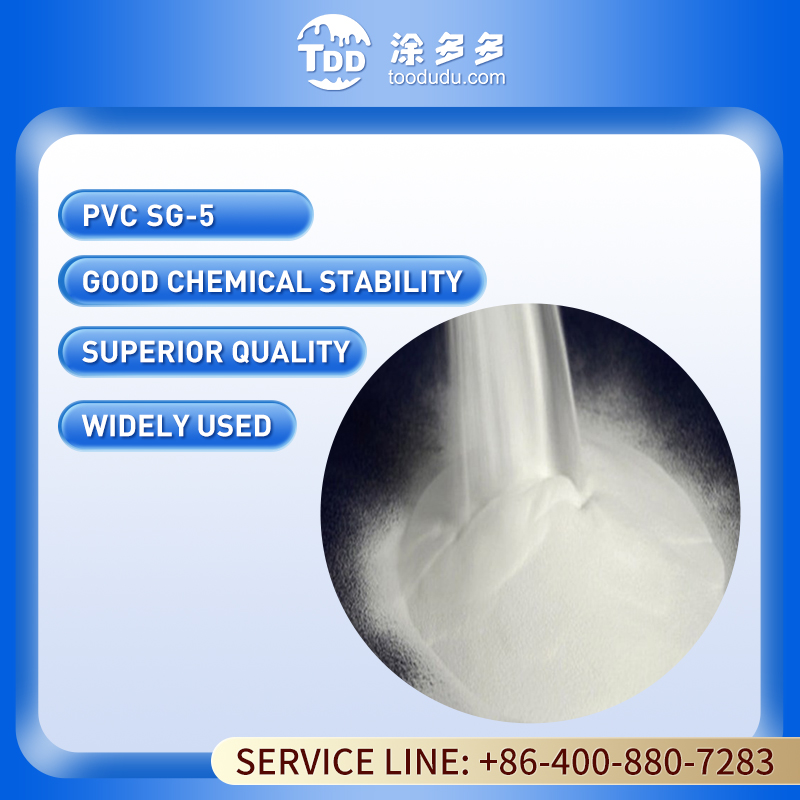 Polyvinyl chloride SG-5 type zhongyan
Polyvinyl chloride SG-5 type zhongyan
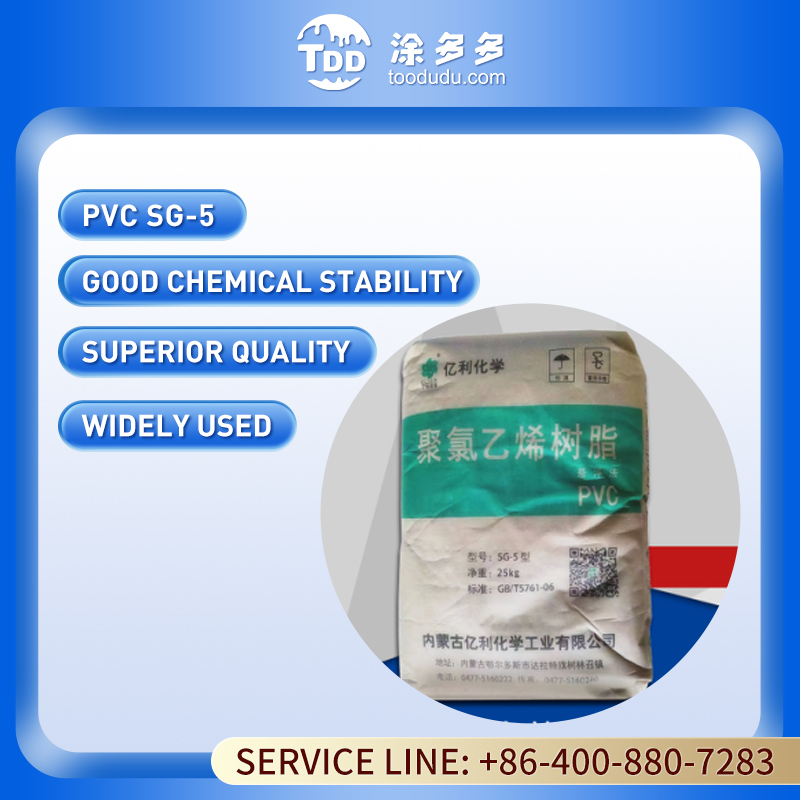 Polyvinyl chloride SG-5 type zhongyan
Polyvinyl chloride SG-5 type zhongyan

